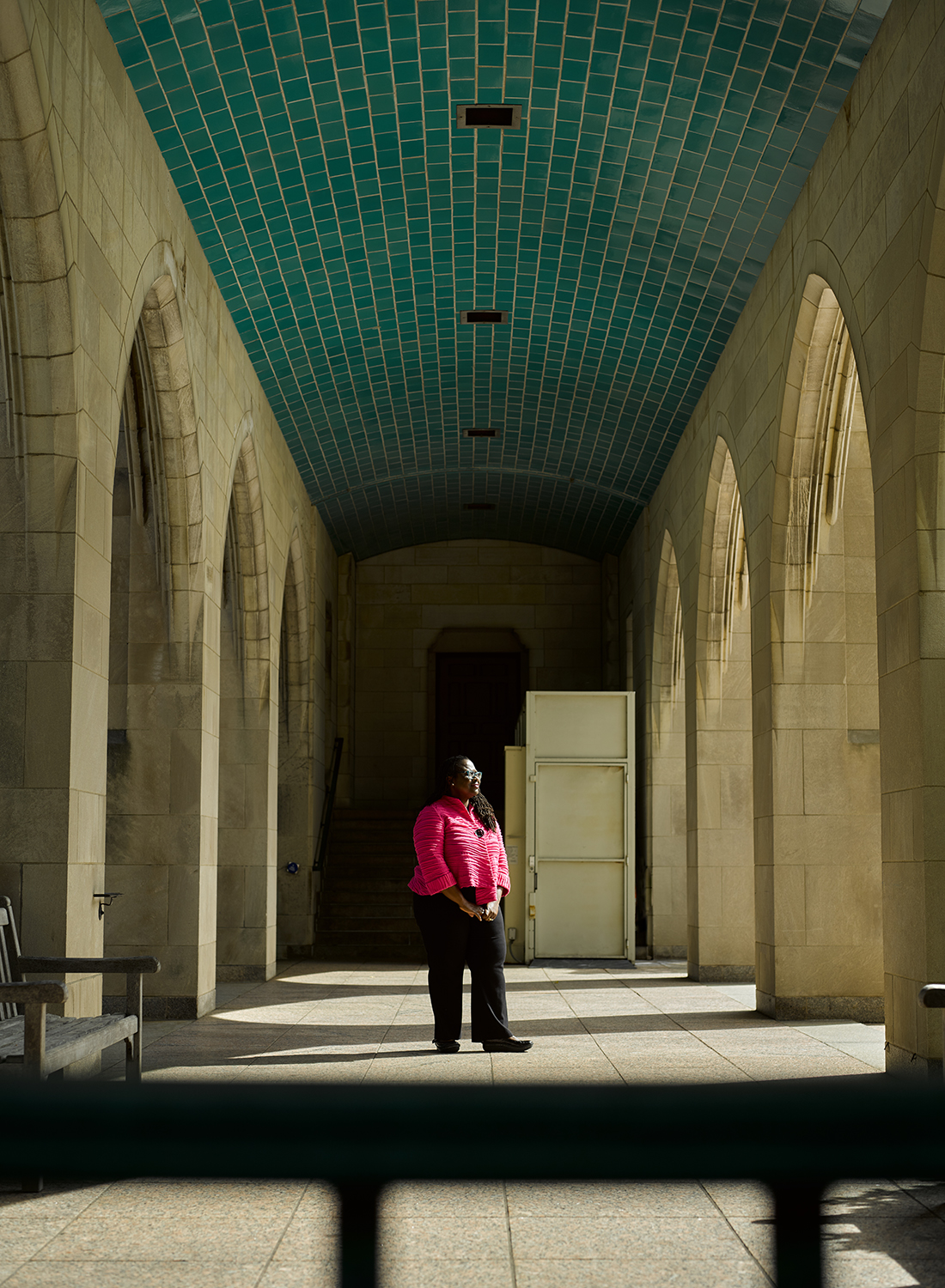What We Traded
Dean Onwuachi-Willig shares her experience of 9/11 and reflects on what has changed since.

Photo by Dan Levy
What We Traded
Dean Onwuachi-Willig shares her experience of 9/11 and reflects on what has changed since.
All of us who are old enough to remember seeing the twin towers fall on September 11, 2001, have a vivid memory of how we spent that day, how we felt that day, and how that day forever changed us. For me, 9/11 not only shook my sense of our nation’s security, it also shaped my very first interactions with the city of Boston. Just days before, my husband and I had moved to Boston with our toddler. We were excited for my husband to start his postdoctoral research position and for me to start my work as an associate at Foley Hoag. It was only my second day at the firm, so I arrived that morning simply expecting to continue the acculturation and adjustment process at my new place of work.
What I remember most about that day is the chaos. What remains with me, and so many others, now, is a deep sadness for the people who were in those buildings and planes, for their families, and for the first responders who ran inside the burning buildings to save others.
I remember learning the news like it was yesterday. My department gathered in a small conference room after the planes first crashed into the towers, waiting to hear more details as the morning unfolded. Everyone was panicked. Two of the hijacked planes had taken off from Logan airport, and Boston was reeling. We were reeling. It was not lost on anyone that we too were in a tall building, and none of us knew what to expect next. I wanted to go home to be with my family, but I was too scared to leave early on just my second day. I recall feeling immense sadness as I wondered how many in the towers hesitated or didn’t leave their buildings for similar fears. Then, my firm’s managing partner, who just happened to be in my department and my assigned mentor walked in and told us that the towers had fallen.
After that, the firm let us go for the day. I tried to call my husband and my mom, but all circuits were busy. No calls were going through.
What I remember most about that day is the chaos. What remains with me, and so many others, now, is a deep sadness for the people who were in those buildings and planes, for their families, and for the first responders who ran inside the burning buildings to save others.
When I walked outside, downtown Boston was in chaos. People were everywhere. I tried calling my husband again, but the lines remained busy. I normally took the train home, but that day I was afraid. I instead sat and took a break with two other associates, and we tried to process everything. I walked the four miles home to Brookline, still too frightened to get on the train.
When we returned to work a couple of days later, we learned that one of our department’s clients, a young man in his thirties, had been on one of the planes. Although I did not know him, it felt personal.
Perhaps that’s why, when the law began to change in response to the attacks, I did not think much of it. The changes happened so quickly. Almost overnight, the PATRIOT Act passed, airport security tightened, and 22 federal agencies consolidated into the Department of Homeland Security.
Over time, as I have read the work of scholars who study these issues, I have begun to view those changes, the laws that followed, and the unevenness with which they are applied, with more cynicism. Even then, I saw how Muslims quickly became the focus of the country’s anger and how they and anyone perceived to be Muslim—including Sikhs and people of Arab and South Asian descent—endured not only a rise in hate crimes but also discriminatory treatment in the name of national security. There was (and there continues to be) a lot of prejudice and discrimination and very few people challenging them.
Twenty years later, we are still struggling with the direction that the country took after the attacks, including the heightened scrutiny and additional security checks that people of color and Muslims of all races face when they fly, the more-than-20-years war in Afghanistan that cost so many lives, and so much more. Today, I think many people, myself included, have come to recognize how much we may have traded away in an effort to ameliorate our anger and grief in that moment.

